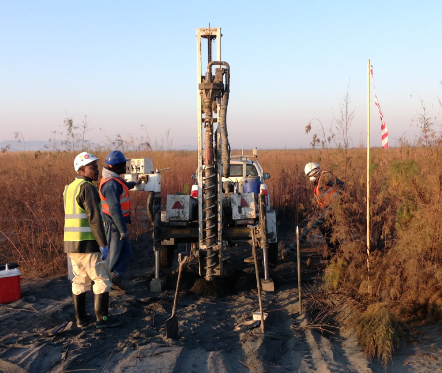cooperatives in Africa are not a new phenomena. I came across quite a few cooperatives/collectives for various uses. There were teachers cooperatives, and civil servant cooperatives, and at first glance I thought that they were a great idea. These cooperatives enabled members to pool their money together and save for a rainy day. I have seen these in Africa and amongst African communities in London. The problem I saw was that this money, was not being used for anything useful; it was being used to pay for funerals! Instead of this money being used to enrich the members, it was simply being used to pay the extortionate costs of funerals.
(I have used the term cooperatives throughout this article, but they are similar to collectives. In a collective, ever member has an equal say in the governance. n a cooperative, leaders are elected, but both function similarly)

Cooperatives have many potential uses, from enabling people to buy appliances for their houses, such as fridges, or solar lamps and chargers, to enhancing agricultural income. It is the latter I want to focus on in this blog.
Agriculture is the bed rock of the African economy, and yet in many countries across the continent it is neglected. A reliance on commodities has changed the focus of a continent that is experience tremendous population growth. Food imports into Africa are considerable to keep up with population growth. Refocussing policy on developing the agricultural sector to cover the food needs of the population would sure up capital to invest on further diversification away from a reliance on commodities.
This week, the Nigerians have done exactly that, looking to refocus and solve the food deficit problem. Adapting policy is a great start, but implementing it is another thing. My belief is, that encouraging farming cooperatives will enable small holder farmers become the solution.
“Agricultural co-operatives are agricultural-producer-owned coops whose primary purpose is increase member producers’ production and incomes by helping better link with finance, agricultural inputs, information, and output markets.” DR. Chiyoge B Sifa – Role of Cooperatives in Agricultural development and security in Africa
I witnessed first hand a situation where farmers were interested in sinking a bore-hole on their farm. With a bore-hole, they would no longer have to rely on rain water to irrigate their crops. In the years leading up to this, rains had been unreliable an there had been many failed crops. The problem is, even with a discount, the farmers could not afford it. At the time, I didn’t think to suggest that all the local farmers pool their money together and all benefit from the bore-hole.

There would be a number of benefits from setting up a cooperative to pay for a bore-hole, not least having the bore-hole! The reason these farmers were not willing to invest, is that they were not sure if it would indeed benefit them. With a smaller individual financial strain, they would be able to see whether it benefitted them and whether it was worth further investment.
It is not just access to water that farmers need in Africa. Preparing the land, maintaining the crops, harvesting and storage are all time consuming and often inefficient. Access to technology to make the whole process efficient is important, and this can be accessed through cooperatives. For example, in a previous post I wrote of the Tryctor, a great mini tractor based on a motorbike design. It is still quite expensive for an individual farmer to buy, but they are aiming the product at cooperatives. Bringing farmers together and engaging the communal nature of farming villages should improve yields.

Cooperatives can also help with purchasing fertiliser, seeds, packaging, tools, technology, marketing, share of knowledge and work load!
Cooperatives have already been successful in the dairy sector in Kenya, for coffee growers in Ethiopia, and for cotton in Mali, amongst others. If you have any other examples of successful cooperatives in Africa, agricultural or otherwise, please let me know by commenting, or by messaging me on Twitter @InventiveAfrica


Yes cooperative is the best way ti go.There is need for commitment from african governments.In uganda mostly governance and less capitalization are major challenges
LikeLike
Hi Turyantunga, thanks for the comment. But, if they form cooperatives, they no longer need to rely on the government. And that is the best position to be in.
LikeLike